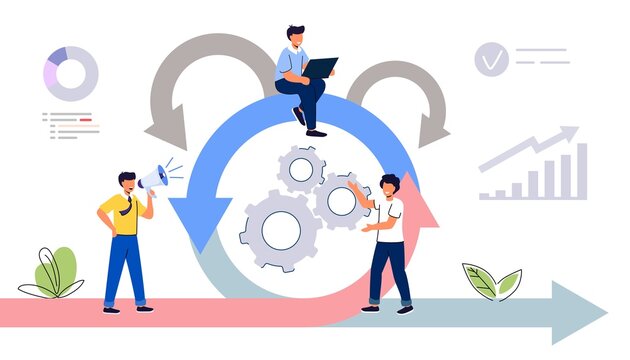Master Java Basic and OOP 2024
Through hands-on exercises and real-world projects, you'll gain the skills and knowledge needed to effectively build and maintain microservices-based applications in a production environment.
Join our amazing training program for only 180 euro!
Takimi 19/20 – Abstraksioni dhe polimorfizmi në lojën e shahut
Takimi 20/20 – Abstraksioni dhe polimorfizmi në lojën e shahut vazhdim
Core Subjects
Over the course of this program, you will have the opportunity to learn and develop a range of important skills and knowledge that will be essential for your success in your chosen field.
Intro to programming
Learn the basics of computer programming in this beginner-friendly course. You will learn how to write and run code, create and use variables, and solve problems using logic and programming concepts.
What are variables?
Variables are like containers that hold values in a program. They have a name and a value, and the value can be changed or updated as needed.
Conditional branching
Conditional branching is a way to make decisions in a program based on certain conditions. You can use if statements to check if something is true or false, and then run different code depending on the result.
Looping in Java
Looping in Java allows you to run a block of code multiple times. You can use for loops to specify how many times the code should run, or use while loops to run the code as long as a certain condition is true.
Arrays and iterations
Arrays are like lists of values that you can use in a program. You can use iterations to loop through an array and do something with each value.
What are methods?
Methods are like little programs inside a bigger program. They have a name and a set of instructions that tell the computer what to do.
Did you say OOP?
OOP is a way of programming that uses objects to represent real-world things and their behavior. Objects have properties and methods, and can interact with each other.
OOP foundation and more!
Learn the foundation of OOP and more in this comprehensive course. You will learn about objects, classes, inheritance, polymorphism, and other important OOP concepts and techniques.
How is this training designed?
This training is designed to help you learn in a structured and organized way. It includes different activities and materials to help you understand the topics and practice what you have learned.
No slides at all? Then what?
The training will be designed to be engaging and interactive, with a focus on hands-on practice and exercises. This approach to learning has been proven to be highly effective in helping students retain and apply new knowledge and skills. In addition to the practice and exercises, there will also be illustrations and diagrams included in the training materials to help clarify and illustrate complex concepts. These visual aids will further enhance the learning experience and make the material more accessible and understandable for all students.


Practice makes it perfect!
Practicing is really important when learning Java. It helps you understand and remember what you have learned, and makes you feel more confident in your skills. When you practice, you get to try out the things you have learned in real-world situations. This helps you see how you can use Java in different ways and makes you feel more powerful in your understanding of the basics. It is also helpful to see how other people use Java in the real world. This can give you ideas and show you how you can use your own knowledge to achieve your goals. In short, practicing is important for getting better at Java. Don't be afraid to try things out and use what you have learned – it will be worth it in the end.
Meet the Instructor
Qëndrim Pllana
As a software engineer with more than 10 years of experience, I have had the opportunity to work on a wide range of projects and gain expertise in both cloud and solution architecture. I have a deep understanding of the technical and practical aspects of these fields, and have used this knowledge to mentor and guide more than 100 candidates on their career paths.
In addition to my mentorship, I have also had the opportunity to build and lead a number of teams. This has given me a unique perspective on the importance of effective communication, collaboration, and management in achieving success. I have seen firsthand the impact that strong leadership can have on a team's performance and morale, and am committed to sharing my insights and experience with you in this course.
Finally, as a CTO for over 5 years, I have gained valuable experience in strategic planning and decision-making at the executive level. I understand the importance of aligning business goals with technical capabilities and have a track record of driving the success of a company through careful planning and execution. I am excited to bring this wealth of knowledge and experience to the course and help you succeed in your career. Overall, my goal is to provide you with a solid foundation of technical skills and practical knowledge that you can use to achieve your career goals.

Do you have any questions?
Register now! Start your career!
What students are saying?!
Register now! Start your career!
Frequently Asked Questions
Answering common questions and clarifying misconceptions
1. What is the duration of the training?
The training will be conducted for a total of 40 hours.
2. What is the cost of this training?
The cost for this training is 1̶8̶0̶ 120 euros.
3. Is the training conducted entirely online?
The training will be conducted fully online due to the advantages it offers such as flexibility convenience and cost-effectiveness.
4. What are the available payment methods?
Payment can be made directly through online banking or by visiting a bank in person.
5. Do I need strong math concepts to learn Java?
It is not necessary to have strong math skills to learn Java but some familiarity with basic math concepts such as arithmetic and algebra may be helpful.
6. Are there any discounts available?
A 50% discount will be offered to individuals who are receiving social assistance.